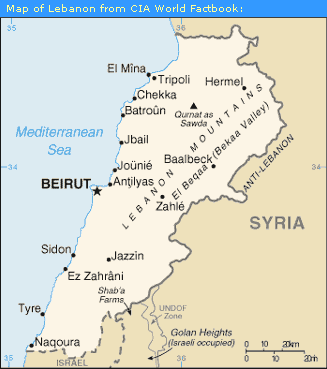Lebanon maintains a parliamentary system, with a president elected by the National Assembly and a prime minister appointed by the president in consultation with the Assembly. By agreement since Lebanon’s independence in 1943, the president is a Maronite Christian, the prime minister is a Sunni Muslim, and the speaker of the legislature is a Shia Muslim. Lebanon’s devastating civil war, from 1975 to 1990, still reverberates today. In the early 1970s, the Palestine Liberation Organization (P.L.O.) used Lebanon as its base for attacks against Israel; previously stable relations between Lebanese Muslims and Christians grew tense, leading to war in 1975. In addition to the civil war, Lebanon soon became the battlefield on which the regional powers Syria, Israel, and the P.L.O. pursued their own agendas. The war also saw the rise of Hezbollah, an Iran-backed, pro-Syria group that has been implicated in numerous attacks on Israel as well as two massive bombings in Buenos Aires, Argentina — one of the Israeli embassy and one of a Jewish community center. After 15 years of war, 150,000 people had died, economic output was halved, and Syria kept thousands of troops — and the political clout they imposed — in Lebanon for another 15 years. In 2004, Syria orchestrated a change in the constitution to extend President Emile Lahoud’s term by three years; Prime Minister Rafik Hariri quit in protest. On February 14, 2005, a powerful car bomb killed Hariri in Beirut, and Syria has been widely blamed for the assassination. Huge protests and international pressure caused the prime minister to resign (only to accept reappointment, and then resign again) and led Syria to withdraw its troops in late April 2005. The new prime minister, Najib Mikati, is considered a moderate. In June 2005 — after the last round of a four-stage election — the Future Movement party, led by Saad Hariri (Rafik’s son) swept 21 of 28 contested seats, giving Hariri’s anti-Syrian coalition a majority in Lebanon’s parliament. Two days later, a car bomb killed George Hawi, a prominent political figure who spoke out against Syria’s influence. After the first round of elections, journalist Samir Kassir, another Syria critic, was also killed in by a car bomb. To date, no suspects have been named in any of the bombings. The democratic nature of the uprising has inspired much optimism, though the nation’s complex history and diverse population present many challenges.
July 19th, 2005
Future for Lebanon
Map: Middle East Governments: Lebanon
- Introduction
- Afghanistan
- Bahrain
- Egypt
- Iran
- Iraq
- Israel
- Jordan
- Kuwait
- Lebanon
- Oman
- Pakistan
- Palestinian Territory
- Qatar
- Saudi Arabia
- Syria
- Turkey
- United Arab Emirates
- Yemen


